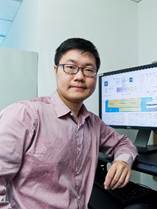继上期郭光灿院士的报告之后,我们信息与量子学术沙龙请到了毕业于清华大学和哈佛大学的学术新秀,香港城市大学的王骋博士,王博士在哈佛大学做博士和博士后研究工作期间,师从Loncar教授,与张勉等人合作,攻克了纳米尺度铌酸锂晶体波导的制作工艺,并完成了低半波电压电光调制器的研制,以及铌酸锂微环光频梳器件的研制。研究工作发表在Nature及其子刊上。这些工作的成功论证,向人们展示了铌酸锂晶体材料在集成光电子学领域的魅力,为古老的铌酸锂器件带来了新的生命。值得指出的是,王骋博士他们的研究工作中,所使用的铌酸锂纳米薄膜晶片是由山东晶正提供。此外,近年来集成光电子领域和光量子信息技术领域交叉融合研究越来越多,基于微环腔的量子光源取得重要研究进展,将光量子技术与铌酸锂集成光电子器件相结合,是我们信息与量子实验室的研究方向之一,希望此次交流能够让双方实验室达成共识,共同推进合作研究工作取得实质性开端。以下是学术沙龙的具体信息,请查阅,欢迎在附近的朋友前来交流,期待您的到来!
-------------------------------------------------------------------------
由基础与前沿研究院量子信息研究中心主办的“信息与量子学术沙龙”第15期邀请香港城市大学王骋博士来校作学术交流。具体安排如下,欢迎师生们参加。
主 题: Lithium niobate nanophotonics——giving new life to an old material
时 间:2019年9月20日(周五)10:00
地 点:沙河校区通信楼725
主讲人:王骋 博士
报告人简介:

Dr. Cheng Wang is an Assistant Professor of Electronic Engineering at City University of Hong Kong. He received his B.S. degree in Microelectronics from Tsinghua University in 2012. Afterwards, he joined Harvard University as a Ph.D. student in the School of Engineering and Applied Sciences, advised by Prof. Marko Loncar. He received his S.M. and Ph.D. degrees, both in Electrical Engineering from Harvard University, in May 2015 and May 2017, respectively. From 2017 – 2018, Cheng conducted research as a postdoctoral fellow at Harvard, before joining City University of Hong Kong in June 2018. Cheng's research focuses on enhancing light-matter interaction in nanophotonic structures. His current research effort focuses on realizing integrated lithium niobate photonic circuits for applications in optical communications and nonlinear optics.
报告摘要:
Lithium niobate (LN) is an excellent nonlinear optical material widely deployed for telecommunications and wavelength conversion. While its high χ2 nonlinearity, wide transparency window and low optical loss offer unique advantages, conventional LN devices are bulky and discrete due to the low index-contrast in ion-exchanged waveguides. In this talk, I will provide a summary of our recent breakthrough in integrated LN photonics that overcomes this limitation by direct etching thin-film LN. We show that waveguides and resonators with sub-wavelength light confinement and extremely low propagation loss (< 0.03 dB/cm) can be fabricated using standard lithography techniques. Together with the strong electro-optic and nonlinear responses, we demonstrate electro-optic modulators with CMOS-compatible driving voltage of 1.4 V and electro-optic bandwidths up to 100 GHz. Leveraging the high nonlinear-optic coefficient, we demonstrate broadband Kerr and electro-optic frequency comb generation, as well as nonlinear wavelength conversion with record-high conversion efficiencies. The high-performance LN nanophotonic platform could open up avenues for a chip-scale photonic integrated circuit densely integrated with non-classic light sources, high-speed switches, filters and wavelength converters, which could find applications in next-generation optical data links, quantum communications and microwave/terahertz photonics.